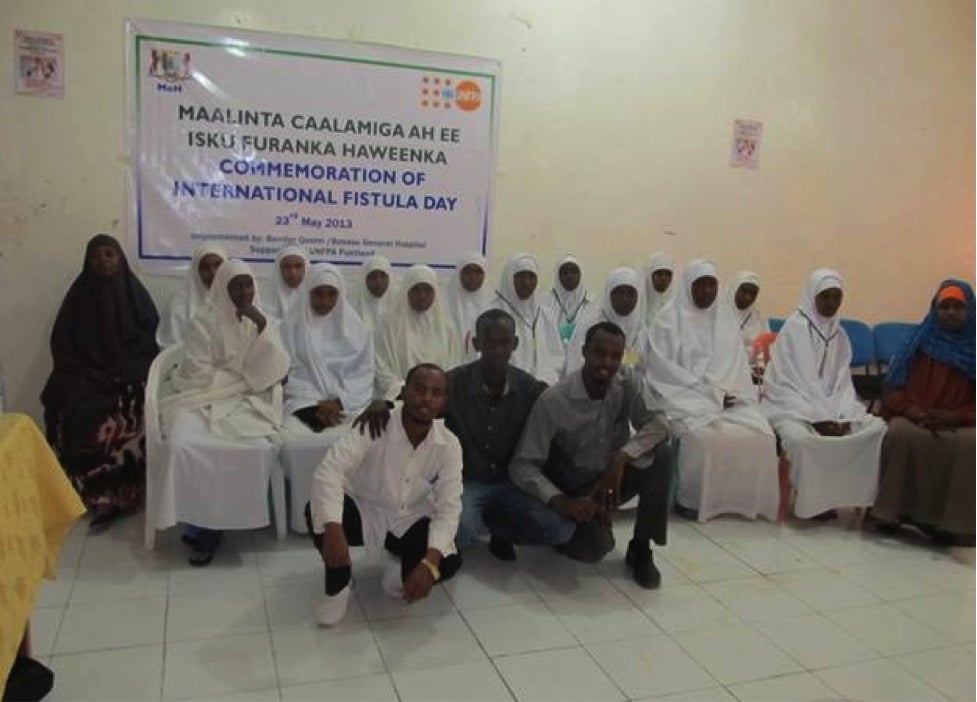UNFPA and Reproductive Health Unit of the Ministry of Health organized the first ever observation of the International Day to End Fistula at the Fistula Repair Centre of Benderqasim Hospital in Bossaso on the 23rd of May, 2013.
The day marked the coming together of community health workers, community midwifery students, doctors, nurses and MOH officials as they showed solidarity with the efforts by different stakeholders aimed at ending obstetric fistula.
The observance of the International Day to End Fistula constituted a milestone event for the Fistula Repair Centre to summarize the outcome of its recent accomplishment that included successful surgeries of 35 fistula cases which ended their suffering and isolation and thus enhanced their well-being and quality of life.
It is worth noting that the surgeries were performed by Dr. Ahmed Ali who had received an extensive training on fistula repairs with the support of UNFPA Somalia.
UNFPA Programme Specialist, Ms. Bahsan Said shared the statement from the UNFPA Executive Director, Dr. Babatunde Osotimehin in which he stressed that the persistence of fistula is a result of ‘‘human rights denied and a reflection of human rights abuse.'' She added it reflects chronic health inequities and health-care system constraints, as well as wider challenges, such as gender and socio-economic inequality, child marriage and early child bearing, all of which can undermine the lives of women and girls and interfere with their enjoyment of their basic human rights.
Ms. Bahsan Said the fistula repair services offered at Benderqasim Hospital are a result of UNFPA's commitment to women's and children health in general and rehabilitating women victimized and stigmatized by obstetric fistula.
Dr. Ahmed Ali took the opportunity to explain that ending fistula requires a well-trained Ob/Gyn and skilled attendants in remote and rural areas in order to complement the treatment with the prevention.
It was also highlighted that the Reproductive Health programme focus should be on: (1) addressing social stigma attached to obstetric fistula; (2) development of human resources to provide emergency obstetric care, skilled attendance at birth, timely referrals and addressing harmful traditional practices that all constitute the prevention side; (3) treatment and social reintegration.

Dr. Shaandheeye, a Pediatrician by training, shed light on the traditional birth attendants' (TBA) practices that are considered as one of the contributing factors. He took note of the importance of the implementation of the Law No.6., regulating the provision of skilled health services by certified medical professionals. As it is widely known, by definition, TBAs can't be considered midwives or nurses are therefore not approved to have the right skills necessary to provide the services in case of obstetric complications.
It is to be noted that the observance of International Day to End Fistula coincided with the launch of the second phase of the fistula repair campaign and thus received a wider media coverage. It is expected that the extensive media coverage will work to make more women aware of the available fistula repair services and referrals at health centers near them.
http://www.garoweonline.com/artman2/publish/Wararka_19/Bossaso_oo_lagu_qabtay_xuska.shtml

